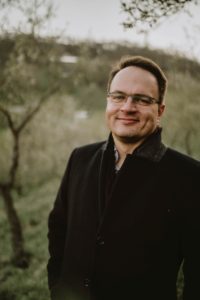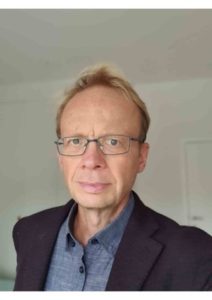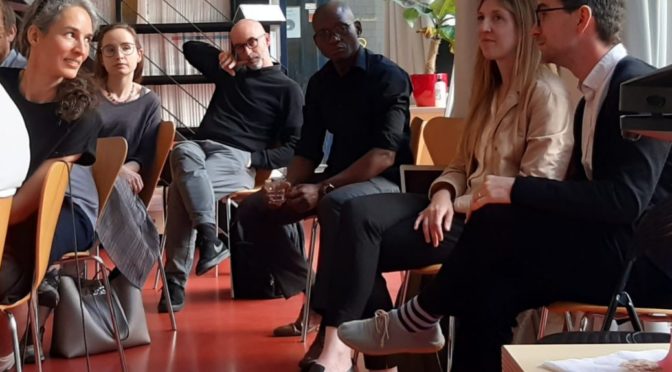The Slovak Academy of Sciences (SAV), the French Research Center in Humanities and Social Sciences in Prague (CEFRES) and the Institute for Humanities & Social Sciences of the French National Research Center (CNRS HSS) are launching the first call for applications for the TANDEM incubator program dedicated to researchers from the Slovak Academy of Sciences and CNRS.
GOALS OF THE PROGRAM
The Tandem CNRS-SAV program endeavors excellency in social sciences and humanities by bringing together Slovak and French colleagues to intensify scientific collaboration between our countries in the frame of European Research Area. It benefits from the experience of two Czech-French Tandem program schemes at CEFRES, whose former members have obtained two ERC grants, incl. the BOAR project.
The aim of the newly launched program starting in 2024 is to associate one SAV researcher and one CNRS HSS or affiliated to CNRS HSS researcher (i.e. member of an UMR – mixed research unit between CNRS and French universities) around a joint research project. CEFRES (see contacts below) may help CNRS (or SAV) applicants to find potential SAV (or CNRS) research partners. This collaboration will lead to reinforcing Slovak-French scientific collaborations through the submission of a project proposal at the latest one year after the end of the program:
- in an ERC call;
- in other calls of the EU Framework Program for Research and Innovation (Horizon Europe);
- in other calls supporting excellent research of comparable significance (with approval of the coordinators of the program), e. g. calls of the French Science Foundation (ANR).
Important: In case of ERC (or similar) calls with one PI only, the TANDEM partners shall decide which of them will submit the application.
ORGANIZATION AND EXPECTED OUTCOMES
One TANDEM team will be selected and will work for two years, from June 2024 (June 1, 2024–May 31, 2026). The TANDEM team will be composed of:
- one SAV researcher, benefitting from financial support granted by SAV (in the case of applying for Horizon Europe project, one post-doc[1] or PhD student could be associated to the research team);
- one CNRS researcher, benefitting from financial support granted by the French Ministry for Higher Education and Research (MESR) via CNRS HSS (specific CNRS international mobility support, soutien à la mobilité internationale, SMI).
During the joint research period devoted to the preparation of common research project application (ERC, Horizon Europe, ANR or equivalent scheme), the TANDEM recipients are expected to:
- present their project during an open kick-off in Slovakia (June 2024);
- organize one Slovak-French or (Central-)European scientific event (workshop, seminar, conference) at the SAV and one at CEFRES;
- participate in seminars, workshops and consultations supporting ERC applicants in case they will chose to submit such a project: in particular, they will be offered the CNRS HSS dedicated support in developing European research applications.
ELIGIBILITY
At SAV, the call is open to humanities and social sciences as well as to interdisciplinary projects: the program is open to researchers from all three SAV Science Departments.
The French partner needs to be eligible for an CNRS HSS SMI – Soutien à la mobilité internationale, available to ca 10 000 researchers, academics, and engineers from over 300 research structures.
The SAV partner:
- needs to obtain a positive statement from the statutory body of the home SAV Institute or Center;
- has to send the completed application form;
- has to send the project plan, identical as the one sent by his TANDEM partner (max 3 pages);
- has to send his/her CV;
- is expected to demonstrate experience in project management.
The CNRS partner:
- is a member of permanent staff (MCF – maître de conférences ; PR – professeur; CR – chargé/e de recherche ; DR – directeur/directrice de recherche ; IR – ingénieur(e) de recherche) of a research unit belonging to a section of CNRS HSS and for which the CNRS is the supervisor or co-supervisor:
-
-
- Ancient and medieval worlds (section 32)
- Modern and Contemporary Worlds (section 33)
- Language sciences (section 34)
- Philosophy, literature, arts (section 35)
- Sociology and legal studies (section 36)
- Economics and management (section 37)
- Anthropology and comparative studies of contemporary societies (section 38)
- Spaces, Territories, Societies (section 39)
- Politics, Power Organization (section 40)
-
-
-
- Important: PhD candidates, postdoctoral fellows and members of university laboratories funded solely by the French Ministry of Higher Education and Research (MESR) are not eligible (in particular: EA – équipes d’accueil).
- has to send the completed application form;
- has to send the project plan, identical as the one sent by his TANDEM partner (max 3 pages);
- has to send his/her CV;
- is expected to demonstrate experience in project management.
SELECTION PROCEDURE
Good knowledge of English is required and sufficient to participate in the TANDEM call. The selection will be based on the potential of the TANDEM team to submit a successful project proposal in an ERC, Horizon Europe, ANR or similar call described above.
The evaluation committee is composed of representatives of the SAV, CEFRES and CNRS. It is based on the Joint SAV – CEFRES Experts’ Committee.
It is highly recommended the applicants contact the program coordinators on behalf of SAV & CEFRES before submitting their proposal: an ad-hoc webinar to discuss both scientific and practical issues may be organized if needed.
IMPORTANT: Information on the TANDEM program is published simultaneously on SAV website and on the website of the SAV Department of International Cooperation (OMS) (for SAV researchers) and by CEFRES and CNRS HSS (for CNRS or affiliated researchers). The calls are identical and the procedure unique as described below.
APPLICATION FORM
- All requested documents must be completed in English and submitted within the stated deadline.
- SAV colleagues will fill the model form available here and submit it in pdf format, entitled TANDEM_Name_SAV.pdf to:
- CNRS or affiliated colleagues will fill the SMI model form available here and submit it in pdf format, entitled SMI_Name_CNRSsectionNumber.pdf to:
FUNDING
- The SAV researcher receives a financial support of 8 750 €/year for regular research stays in France and at CEFRES from the funds earmarked for excellent research at SAV: the principles for the use of funds in the TANDEM program will be described by the Financial Rules. In case of failure to submit any of the projects in the above calls, the home SAV Institute or Center will be required to reimburse the funds.
- The CNRS or affiliated researcher will benefit from a maximal support of 17 500 €/year for regular research stays in Slovakia and at CEFRES, granted by a specific CNRS HSS mobility grant (soutien à la mobilité internationale, SMI)
- The TANDEM research partners will benefit from additional funding:
- of a minimal amount of 1 500 € granted by the French Institute in Slovakia (IFS) for the organization of one scientific event in Slovakia
- of a minimal amount of 1 500 € granted by CEFRES for the organization of one scientific event at CEFRES in Prague.
SCHEDULE
December 1, 2023 : Opening of the call
February 29, 2024, 23:59 CET : Deadline for submissions
March, 2024 : Selection of the team by the Selection Committee
June 1, 2024 : Launch of the selected project
June 2024 : Kick-off event presenting the project in Slovakia
December 2024 : Monitoring report of scientific advancements (its approval by the SAV-CEFRES Experts’ Committee is prerequisite for obtaining financial funding for next calendar year)
December 2025 : Monitoring report of scientific advancements (its approval by the SAV-CEFRES Experts’ Committee is prerequisite for obtaining financial funding for next calendar year)
May 31, 2026 : End of the project funding period
Before 31 May, 2027 : Grant application
CONTACTS
Please send any inquiries related to your TANDEM application to the following coordinators:
[1] Up to eight years after obtaining PhD. (or equivalent).

 Martin Durdovic is a research scholar at the Institute of Sociology of the Czech Academy of Sciences, specializing in energy social research. His current research interests center around social aspects of nuclear energy and nuclear waste management on the one hand and sustainable energy transitions on the other. His research relies on both qualitative and quantitative approaches, such as narrative analysis, stakeholder interaction analysis, public opinion surveys, and other, and also involves engagement with sociological theory and meta-theory. Martin Durdovic is a laureate of the 2020 Czech Sociological Association biennial award for the best sociological book (Narrative and Dialogue. The Theory of Social Intersubjectivity) and a member of various expert bodies and associations. In the 2021-2022 academic year, he was a visiting scholar at the Center for International Security and Cooperation at Stanford University in California. Since February 2024, he coordinates with Gilles Lepesant, the senior research fellow at CNRS – National Center for Scientific Research, Géographie-Cités, a two-year incubation project supported within the Tandem program and entitled: “Contested energy transitions. Conflicts and social innovations in the Czech Republic, Poland, Germany, and France”. More information about Martin Durdovic is available here: https://www.soc.cas.cz/en/lide/martin-durdovic
Martin Durdovic is a research scholar at the Institute of Sociology of the Czech Academy of Sciences, specializing in energy social research. His current research interests center around social aspects of nuclear energy and nuclear waste management on the one hand and sustainable energy transitions on the other. His research relies on both qualitative and quantitative approaches, such as narrative analysis, stakeholder interaction analysis, public opinion surveys, and other, and also involves engagement with sociological theory and meta-theory. Martin Durdovic is a laureate of the 2020 Czech Sociological Association biennial award for the best sociological book (Narrative and Dialogue. The Theory of Social Intersubjectivity) and a member of various expert bodies and associations. In the 2021-2022 academic year, he was a visiting scholar at the Center for International Security and Cooperation at Stanford University in California. Since February 2024, he coordinates with Gilles Lepesant, the senior research fellow at CNRS – National Center for Scientific Research, Géographie-Cités, a two-year incubation project supported within the Tandem program and entitled: “Contested energy transitions. Conflicts and social innovations in the Czech Republic, Poland, Germany, and France”. More information about Martin Durdovic is available here: https://www.soc.cas.cz/en/lide/martin-durdovic




